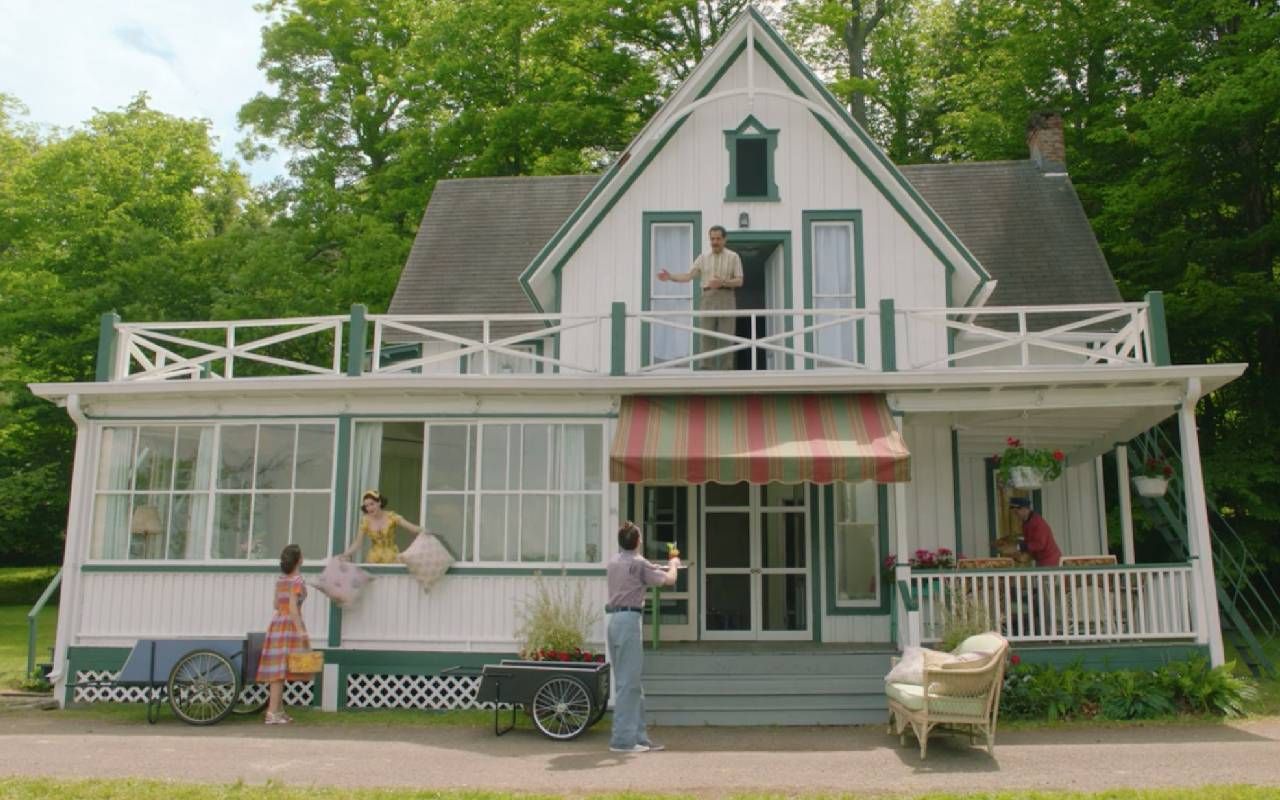Feeling Nostalgic for the Catskills
By the 1950s, half a million people were visiting the Catskills during the summer season. It was a place for relaxation, recreation and entertainment where Jewish people felt welcomed.
When I was a kid in the 70s, every year, my parents would take my brothers and me to spend a few days at a hotel in the Catskills.
Over the years, we stayed at different hotels in the area, including The Concord, Grossiners, Kutchers, The Nevele and Homowack Lodge. Each was different but offered many of the same activities. I have vivid memories of the meals in the big dining hall. I loved being able to order whatever I wanted. The food was abundant and delicious, so much so that my mom would throw the entire basket of rolls into her purse at the last lunch of our stay so we would have snacks for the ride home.

Those days spent in hotels in the Catskills are the basis of some of my favorite childhood memories. And I am not alone in feeling nostalgic about this special area in Upstate New York.
What Were the Catskills?
Patti Posner, 73, of North Carolina, grew up in the Catskills. Her family owned and operated Hotel Brickman. In her book "My View From the Mountains, A Catskill Memoir," Posner discusses her family's history in the famed area and her personal experiences.
"When my great-grandfather Abraham immigrated from Russia in 1908, he knew he didn't want to live in the city," Posner explains. "He bought a property in Sullivan County, New York, because farming was the business he understood."
"With the TB epidemic, people needed to get out of the city. They would pay for a room and meals."
Farming was quite challenging, so the family took in boarders for money. Posner says, "With the TB epidemic, people needed to get out of the city. They would pay for a room and meals. This was the creation of the resort business."
The cool mountain air provided a welcome respite from the un-air-conditioned apartments in the city. By the 1950s, half a million people were visiting the Catskills during the summer season at bungalow colonies, summer camps and an array of hotels.
The farm became Hotel Brickman, hosting 600 guests on its 200 acres. Posner's grandfather took over the business followed by her father and uncle.
Beyond just recalling her experience growing up in the Catskills and her family's history, there is a bigger reason Posner wrote her book.
"The reality is that at its core, the Catskills were built as a place for Jews to escape antisemitism," explains Posner. "We created a place where Jews were welcome, could feel safe and be surrounded by other people like them. If there wasn't antisemitism, there wouldn't have been a need for the Catskills."
A Simple Time
For families visiting the Catskills, it was a place where working-class people could live in luxury for a few days, a week, or even for the summer. "We had a kids' camp so parents could sit by the pool and relax," says Posner. "We also offered constant activities for grownups like ping-pong, art lessons and basketball. There were three delicious meals a day and high-quality entertainment at night. The Catskills hotel model was the original all-inclusive vacation."
"The reality is that at its core, the Catskills were built as a place for Jews to escape antisemitism."
Laurie Rubell, 64, of New Rochelle, New York has great memories of vacationing in the Catskills as a kid.
"I remember all the activities — ice skating, horseback riding, swimming in the pool," she says. "I went to the day camp when I was little, but as I got older, I found other kids to play with. Everyone was friendly, and we talked to one another. There were no politics or social hierarchy — I don't recall my parents ever complaining that anyone was snobby."
Beyond the fun, Rubell's biggest takeaway about that time was how simple things were. She says, "I had total freedom to roam the property. My parents were never worried about me. It was a simpler time — a different era, fewer conflicts and no violence."
Mark Kramer, 77, of New Jersey, wrote his book Borscht Belt Boy: Recollections of a Hotel Brat, about his experience growing up at his father's Catskills hotel, Kramers on Kuzon Lake. Kramer recalls that the doors to the rooms had no keys. "There was a latch inside, but no lock on the outside, yet no one felt unsafe," says Kramer. "The only problem we had regarding theft was on Sundays when guests checked out and some tried to take the linens home with them."
Posner says, "At night, parents would leave their kids in their unlocked rooms so they could go to the nightclub. The doors would be open, and one counselor would be on duty checking each room throughout the evening. It's hard to imagine, but there was never a problem."
Life in the Catskills
During the season (which was Memorial Day to Labor Day, but then became Passover to November), Posner lived at the hotel. "Instead of a living room, I grew up in a hotel lobby," jokes Posner.
As a child, she attended the hotel's day camp with other guests. She says, "I had a great time with other kids at camp. Then, every Sunday after lunch, those kids would leave, new kids would come, and I would play with them. When I started kindergarten, I was confused when the same kids returned the following week. I was so used to hotel life where people checked in and checked out each week."
"So many people have memories of spending time as guests at a Catskills resort, but they have no idea what it took to run a place like this, so it's nice to reminisce with people who worked there."
Posner began working in the office at 15. By 20 she was taking reservations. At 26, she became kitchen manager which included some management of the wait staff. "I hope that one day they make my book in to a movie, just like the classic 'Dirty Dancing,' only it would be called 'Dirty Dining,'" she says.
Posner is still in touch with still in touch with many of the people she worked with at the hotel. "So many people have memories of spending time as guests at a Catskills resort, but they have no idea what it took to run a place like this, so it's nice to reminisce with people who worked there," says Posner.
Kramer also worked at his family's hotel as a young adult. "I had the best time of my life. I was a young adult working, making money and hanging out with friends in the evenings," he says.
That's Entertainment
No conversation about the Catskills would be complete without discussing the entertainers. Famous people who performed in the legendary "Borscht Belt" include Woody Allen, Mel Brooks, Joan Rivers, Henny Youngman, Buddy Hackett and Jean Carroll (who was the inspiration for the main character in the TV series "The Marvelous Mrs. Maisel").
Posner recalls that when comedian Jackie Mason performed at Hotel Brickman, the place was sold out. She says, "We had no rooms left, so my parents made me give Mason my room, and he slept in my bed."
Rubell remembers sneaking into the nightclub as a kid to see comedian Don Rickles perform. "Most of his jokes probably didn't make sense to me," says Rubell. "But I was happy to listen and eat chicken wings. I was a kid being treated like a grownup — my life was fun."
The Decline of the Catskills
By the 1970s, interest in the Catskills had begun to decline. Posner explains, "It was a natural progression. Jews began feeling welcome in more places and wanting to travel to other places." Cheap airfares to places like Miami, San Juan and the Caribbean made these destinations more alluring.
"Peoples' needs changed," explains Kramer. "They stopped wanting to eat three heavy meals a day. They wanted more luxurious accommodations. Our rooms had sinks, but guests shared a bathroom in the hall." Instead of renovating, the Kramers decided to convert the hotel into a children's camp.
By the 90s, only a few of the original hotels remained.
Ilana Hiller, 39, of Israel, went to The Concord with her family every year from 1994-1998.
Hiller says, "I distinctly remember driving up from Rockland County, noticing all the quirky billboards and getting excited as we neared the hotel. I loved staying at the Concord, exploring with my sisters, playing cards in the lobby, and watching the dance lessons given."
Although the heyday had passed, Hiller still remembers her time there fondly. "Even though my visits were at the tail end of the Catskills era, visiting and spending time there provided an escape from the regular day-to-day life," recalls Hiller.
"There were always a bunch of old-timers at the hotel. They got dressed up for dinner and sat in the lobbies with their glasses of wine or cocktails. Being a part of the Catskills family provided a sense of excitement, connection and old-world vibes. "


